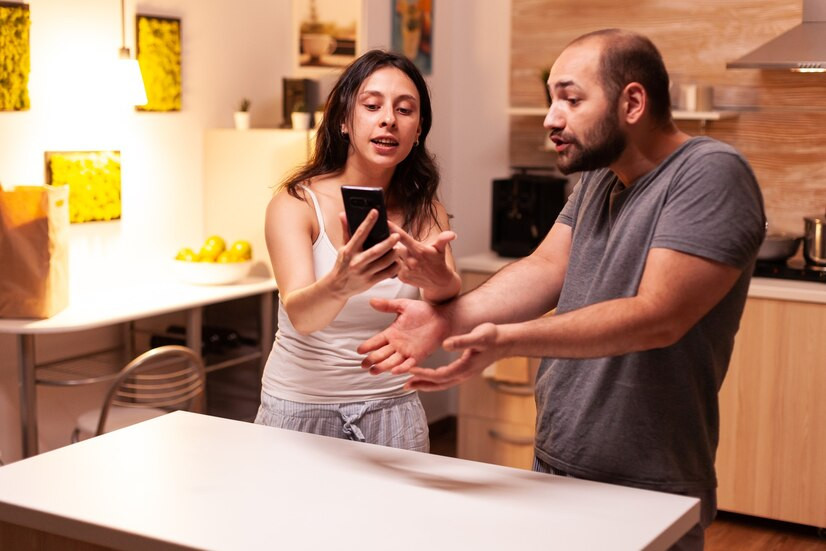Perasaan gugup dan cemas sering kali tidak dapat dibedakan. Namun jika bicara mengenai gangguan kecemasan, masalah ini adalah kondisi yang berbeda dari rasa gugup. Bagaimana membedakan gugup dengan gangguan kecemasan? Simak ulasannya berikut ini.
Perbedaan Gugup dan Gangguan Kecemasan
Istilah gugup dan cemas sering kali digunakan untuk menyebut keresahan yang Anda alami. Meski secara umum gejala gugup mirip dengan apa yang Anda rasakan saat cemas, namun sebenarnya keduanya berbeda, terlebih lagi jika perasaan gugup atau cemas ini dibandingkan dengan gangguan kecemasan.
Kecemasan dan gugup sama-sama merupakan respon tubuh terhadap tekanan atau stres, Dengan mengenali perbedaan antara rasa gugup dengan kecemasan yang sudah menjadi gangguan, hal ini dapat membantu Anda untuk mengatasi kondisi yang Anda rasakan.
Gugup
Gugup adalah reaksi alami dari stres atau tekanan yang Anda alami. Anda bisa merasakan gugup ketika akan melakukan hal yang baru atau menantang seperti presentasi di hadapan banyak orang, melihat pemeriksaan kesehatan atau melakukan wawancara. Rasa gugup juga bisa dikaitkan dengan perasaan positif seperti gugup ketika kencan pertama atau saat akan tampil di panggung.
Beberapa gejala yang muncul saat Anda gugup antara lain mulut kering, tangan berkeringat, kepala pusing dan terkadang timbul perasaan yang meragukan kemampuan diri sendiri. Gejala ini membuat Anda merasa tidak nyaman dan terkadang sulit dikendalikan. Namun umumnya gejala tersebut akan hilang dan mereda setelah Anda berhasil melewati situasi yang menyebabkan Anda gugup.
Baca Juga: Cara Mengatasi Nomophobia, Cemas Berlebihan saat Jauh dari Ponsel
Gangguan kecemasan
Dilansir dari Psych Central, beberapa perbedaan antara gugup dan kecemasan antara lain:
- Kecemasan memiliki definisi klinis, sedangkan gugup tidak
- Gejala kecemasan bisa ringan atau berat, namun rasa gugup biasanya dianggap ringan
- Orang sering kali merasa gugup sebelum menghadapi situasi stres, sedangkan kecemasan bisa muncul kapan saja
- Rasa gugup biasanya hilang setelah kejadian yang membuat stres selesai, sementara rasa cemas mungkin masih ada
Gangguan kecemasan adalah situasi yang berbeda dengan gugup. Pada orang yang mengalami gangguan kecemasan, Anda terus-menerus merasakan kecemasan dan sulit menenangkan diri. Kecemasan tersebut bisa timbul tanpa sebab yang jelas dan mengganggu kehidupan sehari-hari.
Anda bisa merasa gelisah, khawatir dan tertekan terus-menerus, jantung berdebar serta otot kaku dan tegang. Pada gangguan kecemasan, keluhan-keluhan tersebut dapat berlangsung lama (lebih dari 6 bulan) bahkan bisa membuat Anda menghindari tempat atau situasi yang memicu gejala tidak nyaman tersebut.
Baca Juga: Pilihan Jenis Teh untuk Meredakan Stres dan Kecemasan
Cara Mengatasi Gugup dan Kecemasan
Meskipun gejala yang dirasakan saat gugup atau gangguan kecemasan terkadang sama, namun keduanya memiliki penanganan berbeda. Gugup biasanya dipicu oleh situasi tertentu yang bersifat spesifik sehingga setelah situasi tersebut berakhir Anda tidak lagi merasa gugup. Sementara itu pada gangguan kecemasan, perasaan cemas yang mengganggu pikiran umumnya menetap sampai mengganggu kehidupan.
Gugup umumnya bersifat sementara, bersifat wajar dan tidak berbahaya. Anda tidak perlu pengobatan khusus dalam mengatasi rasa gugup. Untuk mengatasi rasa gugup dalam situasi tertentu, beberapa cara yang bisa Anda lakukan antara lain:
- Sering berlatih hal yang memicu gugup (presentasi, wawancara)
- Latihan pernapasan
- Menanamkan pikiran positif
Sedangkan untuk mengatasi gangguan kecemasan, jika gangguan kecemasan mulai mengganggu aktivitas Anda, maka sebaiknya konsultasikan ke dokter atau psikolog. Pada kasus tertentu dokter dapat memberikan obat untuk meredakan gangguan kecemasan yang Anda rasakan, namun pada kasus ringan umumnya dokter akan merekomendasikan terapi nonfarmakologis dan perubahan gaya hidup.
Apabila Anda mengalami pertanyaan seputar kesehatan, sebaiknya periksakan ke dokter atau manfaatkan fitur konsultasi yang tersedia pada aplikasi Ai Care di ponsel Anda.
Mau tahu tips dan trik kesehatan, pertolongan pertama, dan home remedies lainnya? Cek di sini, ya!
- dr Hanifa Rahma
Ankrom, S. (2023). Nervous vs. Anxious: What's the Difference?. Available from: https://www.verywellmind.com/is-it-normal-anxiety-or-an-anxiety-disorder-2584401
Elmer, J. (2022). Are You Anxious or Nervous? Here’s the Difference. Available from: https://psychcentral.com/anxiety/anxious-vs-nervous
Deering, S. (2023). Is It Anxiety or Just Nerves?. Available from: https://www.healthcentral.com/article/what-difference-between-anxiety-feeling-nervous
Malka, T. (2022). Nervousness: Is It Different than Anxiety?. Available from: https://khealth.com/learn/anxiety/nervousness/












